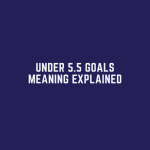Understanding Odds
Odds in sports betting represent the likelihood of a particular outcome occurring in an event. They help bettors understand the potential return they can receive from their wager based on the probability of the outcome. In simple terms, odds indicate the ratio between the amount of money won and the amount of money wagered, with higher odds reflecting a lower probability of the event happening and vice versa.
There are three common types of odds formats used in sports betting: decimal, fractional, and moneyline. Decimal odds display the total payout a bettor will receive, including their initial stake. Fractional odds represent the potential profit relative to the stake, while moneyline odds use positive or negative numbers to indicate the underdog and favorite in a matchup. Understanding these different formats is essential for bettors to make informed decisions when placing bets.
Types of Bets
When it comes to sports betting, there are various types of bets that punters can place. The most common type is the straight bet, where you simply choose a team or player to win. Another popular bet is the point spread wager, where the favorite is handicapped by a certain number of points, making the odds more even. Parlay bets involve combining multiple selections into one bet, offering higher potential payouts but requiring all selections to be correct to win.
In addition to these bets, there are also proposition bets, which are based on a specific outcome within a game rather than the overall result. Futures bets, on the other hand, involve predicting the outcome of an event that will happen in the future, such as the winner of a league or tournament. Understanding the different types of bets available can help bettors make more informed decisions and enhance their overall experience in sports betting.
Bookmakers and Sportsbooks
Bookmakers and sportsbooks play a pivotal role in the world of sports betting. They serve as the intermediaries between bettors and the betting market, offering odds on various sporting events. These establishments carefully calculate the odds to ensure a profit margin while remaining competitive in the industry.
When engaging with bookmakers and sportsbooks, bettors should consider aspects such as the variety of betting options available, the competitiveness of the odds offered, and the overall user experience. It is essential to compare different bookmakers to find the best value for your bets and to ensure a positive betting experience. By understanding how bookmakers operate and the services they provide, bettors can make informed decisions to maximize their chances of success in the betting world.
The Role of Probability
Understanding the role of probability in betting is crucial for anyone looking to engage in sports wagering. Probability is the likelihood of a certain outcome occurring, expressed as a value between 0 and 1. In betting, this value is used to determine the chances of a particular event happening, whether it’s the outcome of a game, the number of goals scored, or any other variable that can be bet on.
Bookmakers and sportsbooks rely heavily on probability when setting the odds for various bets. By analyzing historical data, current trends, and other relevant factors, bookmakers calculate the probabilities of different outcomes and then convert these probabilities into odds. Understanding how probability is used to determine odds can give bettors an edge in making informed decisions and identifying potential value bets.
Factors Influencing Betting Odds
Several key factors can significantly influence betting odds, impacting the likelihood of a particular outcome. One crucial factor is the team or athlete’s performance history, as past achievements or failures can sway the odds in one direction or another. Additionally, injuries or suspensions to key players can also have a substantial impact on the odds, as the absence of a star player can weaken a team’s chances of winning.
Another important factor that can influence betting odds is the venue of the event. Home-field advantage, for example, can play a significant role in determining the likelihood of a team’s success. The familiarity and support of the home crowd can give a team the extra edge needed to pull off a victory, leading oddsmakers to adjust the betting odds accordingly. Furthermore, weather conditions at outdoor events can also be a critical factor in determining the odds, as certain teams or athletes may excel or struggle in specific weather conditions.















